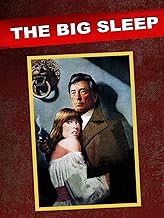Also of note:
-
Presidential mental activity is only dimly understood. Jacob Sullum wonders: Did Trump Really Believe the Election Was Stolen? Here Is Why It Matters.
The indictment that was unsealed yesterday in United States of America v. Donald J. Trump uses the phrase "knowingly false" 33 times, referring to the former president's claims about the massive fraud that supposedly denied him his rightful victory in the 2020 election. There is a very good reason why that characterization is sprinkled throughout the indictment: All of the charges—which include conspiring to defraud the United States, conspiring to obstruct an official proceeding, and conspiring to deprive Americans of their voting rights—depend on the assumption that Trump did not really think he had won reelection.
Nearly three years after Trump began complaining about "a major fraud" that supposedly had delivered a phony victory to Joe Biden, however, it remains unclear whether he honestly believed the nonsense he was spouting. The indictment itself includes evidence pointing in both directions.
I'm pretty sure they didn't execute a search warrant on Trump's brain. And even if such a thing were possible, certainly those executing the warrant would deserve hazardous duty pay.
-
Obvious acquittal on all charges. Jim Geraghty wades into The Uncharted Waters of Jack Smith's J6 Trump Indictment. And I couldn't help but pick this bit out:
Now, from my perspective, the best defense for Trump is insanity, because he often asserts things that aren’t true and, as far as anyone can tell, absolutely, totally believes them. If you tell Trump something he wants to hear, he will completely embrace it as God’s honest truth, even if there is a mountain of counterevidence. And if you tell Trump something he doesn’t want to hear, and point to a mountain of supporting evidence, Trump will dismiss it because he read something different on the Internet or “lots of people are saying” the opposite. His top advisers telling him that two plus two equals four will not dissuade him from believing that two plus two equals five, if it is in his interests to believe that two plus two equals five. This is an extremely compelling reason to keep Trump out of the Oval Office, but not an extremely compelling reason to put him behind bars. Being delusional is not a crime.
"Personality traits several sigma off the mean" is a nice way of saying "cuckoo for Cocoa Puffs".
-
Things are more like they are today than they've ever been before. Arnold Kling asks if we're in An Epistemic Crisis? Looking at "respected" authorities (apparently) intentionally misleading the public on a range of important issues: the Covid lab-leak hypothesis, Hunter's laptop, Harvard's defense of its race-based admission polcy.
When elites lie, this puts us in an epistemic crisis. I say that as human beings, in order to decide what to believe, we have to decide who to believe. I cannot work out the principles of physics or the right way to respond to a COVID outbreak all by myself. I cannot investigate every news item I come across to uncover the facts of the matter. I need to find folks I can trust to help me.
If elite opinion is just wrong, so be it. Anyone can make a mistake. But when elites are telling lies, we are in trouble. If the people who are in high-status positions are willing to lie, then the rest of us have a much harder job sorting out the truth.
I suggest that elite lies are a particularly bad problem for the Blue team, which styles itself as cognitively and morally superior. You may legitimately call out lies from the Red team, but whataboutism won’t solve the epistemic crisis. “What about Trump’s lies?” is a rhetorical race to the bottom.
I recently found occasion to quote John 18:38:
Pilate said to him, “What is truth?”
Now there's an epistemic crisis. I suppose it's not the first one either.
-
Unsurprising headline du jour. Eric Boehm provides it: U.S. Credit Rating Downgrade Is a Sign of Government Dysfunction
An increasingly unstable fiscal outlook and an elected government that won't do anything about it have triggered America's second-ever credit rating downgrade.
Fitch Ratings downgraded the U.S. government's credit rating from "AAA" to "AA+" on Tuesday afternoon, signaling to investors that America's Treasury bonds are a qualitatively less ideal purchase. In its announcement, Fitch said the downgrade reflected the federal government's growing mountain of debt and the country's fraught political dynamics—most recently evidenced by the brinksmanship over the debt ceiling that nearly triggered a default on the national debt.
I have so far resisted the urge to buy gold and bury it in the backyard. (So don't bother trying to dig it up, reader!)
-
Having failed to do anything to fix government dysfunction… some Congresscritters are looking to "fix" something that isn't that broken. Jonathan Nicastro examines the The Latest Bipartisan Folly: A New Commission to Regulate Big Tech
In the New York Times, Senators Lindsey Graham (R., S.C.) and Elizabeth Warren (D., Mass.) published a polemic against technology firms. Besides whining about “Big Tech,” the senators call for the passage of the Digital Consumer Protection Commission Act (DCPCA) to “create an independent, bipartisan regulator charged with licensing and policing the nation’s biggest tech companies,” supposedly “to prevent online harm, promote free speech and competition, guard Americans’ privacy and protect national security.” But their economic arguments are specious, and their noneconomic arguments are dubious.
To their credit, the senators acknowledge the success of the digital revolution, which has “promoted social interaction, democratized information and [given] us hundreds of new ways to have fun.” Unfortunately, they fail to realize that this success hinges on the economies of scale and natural monopoly status earned by the biggest of the Big Tech firms. If the senators succeed in passing the DCPCA, they will unintentionally grant artificial monopolies that don’t benefit consumers to those firms big enough to afford the agency’s “licensing and policing.” The reality of regulatory capture is lost on Graham and Warren, which is both amusing and frustrating given their dedication of an entire paragraph to the history of regulatory agencies.
Now, as a mostly-libertarian, I view this as obviously a bad idea. But if there's the slightest bit of doubt about that for you, check out Nicastro.
Recently on the movie blog:
![[Self Inflicted]](/ps/media/4ce6389e-2223-4d44-be9c-d73fd6c2936b_1404x1020.jpg)


![[4 stars]](/ps/images/40stars.gif)
![[IMDB Link]](https://ia.media-imdb.com/images/G/01/imdb/plugins/rating/images/imdb_46x22.png)
![[3.5 stars]](/ps/images/35stars.gif)
![[The Blogger and His Dog]](/ps/images/me_with_barney.jpg)



